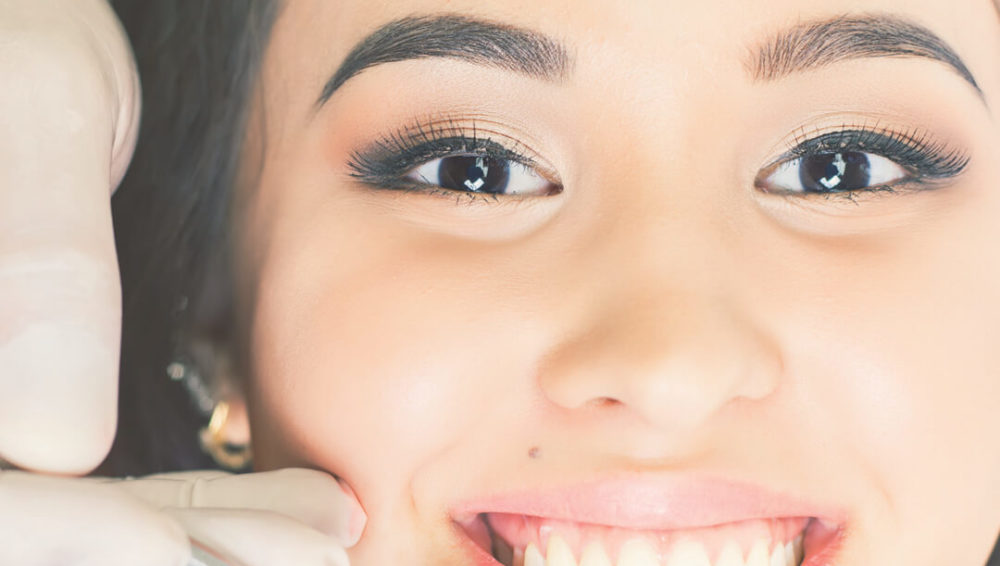Keeping your mouth healthy during pregnancy
Yourself

Your oral health is an important part of your overall health, and untreated dental disease can be harmful to you and your developing Your Child. Therefore it’s important to take good care of your teeth and gums while pregnant.
How does pregnancy affect your dental health?
Certain changes occur in your body during pregnancy, such as hormonal changes, more blood flowing through your body, and more acid in your mouth. These changes make you more prone to some dental health problems during pregnancy than before you got pregnant.
These problems include:
Gingivitis: High levels of the hormone progesterone can predispose you to gingivitis during pregnancy. Gingivitis makes you have red, swollen or sore gums. Your gums may bleed when you brush your teeth. Without treatment, gingivitis can become a serious gum disease called periodontitis.
Loose teeth: The levels of the hormones progesterone and estrogen rise during pregnancy and can affect the tissues and bones that keep your teeth in place. This loosens your teeth.
Periodontitis: This gum disease can be quite serious. It occurs when there are swelling and infection in the gums and the bones that keep your teeth in place. It can make your teeth loose.
Pregnancy tumors: These are lumps that form on swollen gums, usually in between teeth. They are not cancer. The tumors can cause bleeding, and they may be caused by having too much plaque (sticky bacteria that forms on teeth). Pregnancy tumors usually resolve on their own. However, in some cases, you may need to have them removed by surgery sometime after you give birth.
Tooth decay: This occurs when acids in your mouth break down a tooth’s enamel. Enamel is the hard, outer layer of a tooth. You’re more likely to have tooth decay during pregnancy because you have more acid in your mouth than usual. You even have more acid in your mouth if you have morning sickness and throw up often.
Tooth loss: Some of your teeth may fall out, or need to be removed by your dentist if you have serious tooth decay or gum disease.
What are the signs and symptoms of dental health problems during pregnancy?
These are some of the signs and symptoms:
- Bad breath
- Gums that hurt when they’re touched, or gums that bleed when you brush your teeth
- Loose teeth
- Mouth sores, lumps, or other growths
- Red or red-purple gums
- Shiny, sore or swollen gums
- Toothache or other pain
See your dentist if you have any of these signs or symptoms.
How you can prevent dental health problems?
Regular brushing: Regular brushing and flossing around the gum line can remove plaque and prevent periodontitis and tooth decay. Be sure you brush your teeth with fluoride toothpaste twice a day using a toothbrush with soft bristles. Floss once a day to clean in between your teeth.
Rinse your mouth: Rinse your mouth with water after each throw-up to wash away the acid if morning sickness makes you throw up.
Dental checkup: It’s important to visit your dentist every 6 months, even during pregnancy. At your checkup, tell your dentist that you’re pregnant.
Eat healthy foods: Eating healthily give you and your growing baby important nutrients. Your Child’s teeth start developing between 3 and 6 months of pregnancy. Nutrients, like calcium, protein and vitamins A, C and D, help your little one’s teeth grow healthy.
Limit sweets: Eating too many sweet foods or drinks can lead to tooth decay. Instead of sweets, drink water and pick healthy foods like fruits, vegetables, and dairy products.
If you go see the dentist while pregnant, make sure you have with you a medical certificate from your obstetrician. Some dentists otherwise won’t even clean your teeth.
Verified:
Dr. Wanwadee Sapmee Panyakat (OB-GYN), license no. 41208 (11 December 2019)



